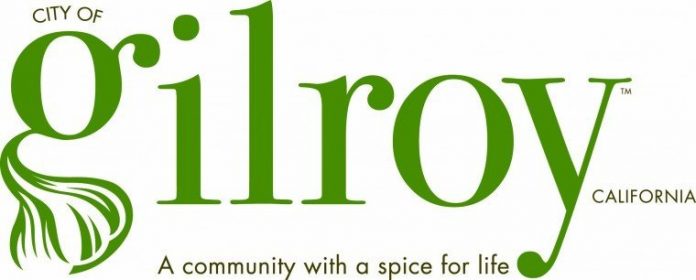The City of Gilroy could take an unprecedented turn for transparency by baring all when it comes to contract negotiations with employees.
Following a unanimous decision during the Dec. 12 meeting of the Open Government Commission, the OGC directed City staff to prepare a report on the feasibility of opening up the negotiation process to the public, modeled after the Civic Openness in Negotiations ordinance passed by the Costa Mesa City Council in 2012.
If Gilroy follows through, it would become one of the first cities in California to shed light on a complex process that has traditionally gone on behind closed doors.
The Costa Mesa ordinance, known as COIN, requires that an independent negotiator handle negotiations instead of the traditional, executive-level public employee. An independent economic analyst must also examine and report publicly on the fiscal impacts of the contract proposal. After every offer or counter-offer, the details of the proposal and their fiscal implications would be made public.
During the OGC meeting, Councilman Perry Woodward, who is the outgoing OGC Chairperson, read aloud a Contra Costa Times newspaper editorial on COIN that he thought “very well describes a problem that should be fixed,” he said. “I thought since I am now ending my tenure on the OGC I would bring this to you and ask that you direct staff to come back with the Costa Mesa ordinance and a report on the feasibility of forwarding this on to the Council to make a kind of addition to the Open Government Ordinance.”
Other commissioners were supportive of the concept, while some said they weren’t aware that a California city had successfully passed such an ordinance.
“I’m ready to say ‘yes, let’s do it immediately,’” said OGC Commissioner Jack Foley. “I think it’s a marvelous idea. Government by union is ridiculous and the stuff that goes on behind closed doors – that people never know about until it’s a done deal – is against the public interest.”
OGC Commissioner Walt Glines proposed taking the concept a step further than the City of Costa Mesa. He inquired about opening up the negotiations entirely.
“I would have all negotiations open to anybody,” Glines said, adding that he was unsure of the legality of the idea. “I think you’d get rid of a lot of game-playing.”
“This is remarkable. This is a game-changer if it catches on,” Foley added. “It could become a ballot measure and it could become state law.”
If approved by City Council, the amendment would require AFSCME Local 101, representing city employees; IAFF Local 2805, representing firefighters; the Gilroy Police Officers Association; and the Gilroy Management Association to allow public comment during each step of contract negotiation process.
President of the GPOA Dave Aceves told the Dispatch in an email that the organization has not had any time to research this matter. The Dispatch’s inquiry was the first time the union had heard about the proposal.
None of the other three presidents of the potentially affected unions responded to requests for comment. Mayor Don Gage, Council members Terri Aulman, Dion Bracco, Peter Arellano, Peter Leroe-Munoz and Cat Tucker did not respond to requests for comment either.
Stephen Mensinger, Costa Mesa Mayor Pro Tempore and creator of the COIN ordinance, said he’s pleased to see other California cities such as Gilroy carry on the concept of transparency to address what he calls the crisis of unfunded pension liabilities.
Since passed by Costa Mesa City Council in 2012, more than 20 representatives from other cities have called Mensinger asking for advice on how to replicate the ordinance.
“It makes me sad that we even have to have this,” Mensinger said Monday. “Ultimately, the unions know exactly what’s happening and the general public doesn’t. The unfunded liability won’t go away with COIN; it’s going to take people with character and integrity in public life to solve that.”
Since he first proposed the ordinance in 2011, Mensinger has received the support of his now-constituents and colleagues. During the 2012 race for a Costa Mesa City Council seat, Mensinger received the most votes for a first-time candidate in the history of the city.
“(The unions) spent a ton of money against me,” he said. “The bottom line is, there hasn’t really been hell to pay but what’s most interesting is the number of cities where City Council members say they don’t want to go there (and replicate COIN).”
As it stands now in Gilroy, when a contract goes before City Council for approval, the contract is included in the council packet online and is made available to the public prior to the meeting. Throughout the negotiation process though, it’s a different story.
The COIN ordinance, alternately, would allow members of the public and City Council to be aware of salary increases Mensinger says take place without much debate and often go unreported.
Since June, the City of Gilroy has given four pay raises to certain bargaining units and employees.
First, it was AFSCME Local 101 and the GMA in June with a two-percent pay raise; then came a half-percent pay raise for firefighters in October.
On Nov. 18, City Council voted unanimously to give City Administrator Tom Haglund a two-percent pay raise, bringing his annual salary to $219,255. On Dec. 2, City Council also voted unanimously to give City Clerk Freels a two-percent salary increase, bringing her annual pay to $104,695. AFSCME Local 1010 and the GMA are scheduled to receive another two-percent raise in July 2014.
“All boats float in a rising tide,” Mensinger observed. “Whatever fire gets, police get. Whatever police get, general employees get.”
For fiscal year 2013, the direct operating costs of running the Gilroy police and fire departments accounted for 68 percent of the $37.6 million General Fund for the City, according to City records.
Those costs include salaries and benefits for sworn and non-sworn employees; any sort of police and fire expenditures; contractual services and the allocation of equipment; and fleet and facilities, according to Gilroy Finance Director Christina Turner.
The addition of overhead, including retirement and contract costs, brings the total cost of police and fire closer to 80 percent of Gilroy’s General Fund, Turner added.
“Not a single person has come up with a good reason why you wouldn’t do it,” Mensinger said, referring to COIN. “What I’ve heard from other cities, groups, committees and other community leaders is that staff will say it’s too expensive. To have a negotiator do this for $20,000 will save tens of millions of dollars down the road.”
Gilroy Human Resources Director LeeAnn McPhillips will prepare and present a report at the next OGC meeting scheduled for 6 p.m. on March 13 in Council chambers.















